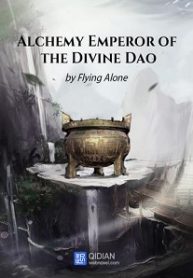Holy Roman Empire - Chapter 404
Chapter 404: Chapter 91, The Cost of Betrayal
Watching the continuously rising number of casualties, Franz also felt a headache coming on, just as Carlo Ferrigno had predicted; Austria too needed to save face.
рlease,reading On ΒΟXΝOVEL.ϹʘM
If it could be revealed that they were fighting the French, then a loss of thousands would mean nothing, but the problem was that Austria was not at all prepared for a showdown with France.
Once the veil was pierced, it was destined to escalate into total war. There could be no localized conflict; neither side could accept defeat, and once the battle began, it would escalate to a matter of life or death.
The proud French would not concede, and with Napoleon III at the helm, they would have to fight to the bitter end; Austria had the advantage of a larger population and consequently held the upper hand in war potential, so Franz was even less likely to give in.
This meant that even if a winner emerged from a localized war, it would be pointless since no one was willing to step back, and the war would continue.
Either it would drag on for three to five years until one side could hold out no longer and admitted defeat, or they would end in mutual destruction; alternatively, they could go all-in for a decisive battle that would settle the matter of life or death.
This was not something that could come to an end in the short term; in an age without planes, tanks, or cars, where armies marched on foot, blitzkrieg was impossible.
(vitag.Init = window.vitag.Init || []).push(function(){viAPItag.display(“vi_765923973”)})
The crux of the matter was overall national strength; A glance at the map would show that the geographic positions of France and Austria had already decided that whoever initiated the attack would be at a disadvantage.
The most Italy could do was take over most of the Kingdom of Sardinia, which wasn’t a core area for the French, and the locals were a group of unruly Italians; occupying this area served no purpose.
It would instead increase the pressure of logistical supplies, and Franz did not believe that the Austrian army had the capability to cross the Alps and march all the way to Paris.
It was more likely that they would be constrained by logistics and then pushed back by the French. After all, the French could conduct sea transportations and wage a war of attrition against the Austrian army in this region.
In the Central European Region, the barrier formed by the German Federation Empire and Switzerland precluded the notion of “passage”; the very thought was akin to invasion.
Unless France was enticed into launching an offensive, Austria was unlikely to attack first. Franz did not wish to experience the feeling of being rejected, an experience that was nothing short of dreadful.
If all these could be tolerated, what Franz found utterly unacceptable was the cost of war; at most, a victory over France would result in a sum of war reparations.
Annexing territory was out of reach for Austria! Besides, Franz really had no interest in French land.
The only neighboring Kingdom of Sardinia was also too dangerous to claim, for it would result in an explosion of the Italian population within the nation, hindering national integration and increasing the chances of instability.
Colonies? Once France and Austria came to blows, how many vessels the Austrian navy would have left was an unknown; with divine intervention needed just to hold onto existing territories, where would they have the capacity for expansion?
Even the war reparations were uncertain; if John Bull got involved, all the effort might well be wasted.
Do not count on the Russian-Austrian Alliance, for it is unreliable. Just as Austria could paddle in the waters of the Prusso-Russian war, the Russians could do the same in a French-Russian conflict, especially since Russia was already locked in a tough struggle with Prussia and unable to provide any help
(vitag.Init = window.vitag.Init || []).push(function(){viAPItag.display(“vi_765923973”)})
If the truth remained concealed, the casualty numbers alone were a blow to the Austrian military’s pride. Continuing on, surpassing the casualties of the Ausa War was inevitable.
Currently, the Italian Peninsula is a powder keg, with the smell of gunpowder growing stronger as France and Austria continuously send in more troops; it is only a spark away from detonation.
Napoleon III, as well as Franz, were feeling roughly the same, or perhaps even worse. If a conflict broke out in Italy, the worst Austria could do was to end up fruitless, while French territories in the Balkans would be jeopardized.
The French Navy is very strong, and the Austrian Navy is not weak either; at least, in the Adriatic Sea, the French Navy could not suppress Austria, leaving the French forces on the Balkan Peninsula isolated from the start.
If they could win the war, then losing the French-Balkan Peninsula could be acceptable. The problem is, due to geographical constraints, the most suitable battleground currently is the Italian Area.
In the Central European Region, Napoleon III didn’t dare to stir trouble, otherwise the enemy would not just be Austria, but the Anti-French Alliance.
Marching from Italy all the way to Vienna, this distance could make the French Army collapse countless times. Sure, Austria’s railways are indeed quite well-developed, but everyone’s tracks are different, making them incompatible; the railways cannot be relied upon at all.
Even in an ideal state, normally the French Army would probably be halted in the Lombardy Region, where there are comprehensive fortress works—these are not so easily breached.
In the Ausa War, the Kingdom of Sardinia relied on internal sabotage to tear through the defenses, but now there are not that many insiders.
Against such a backdrop, even if the French forces were to occupy the Two Sicilian Kingdom, the situation could only be considered a stalemate for both parties.
Winning the war, unless like in the original timeline, would require Franz to personally lead the troops into battle and command foolishly.
Time has changed, and if Franz and Napoleon III were to lead their troops into a battle against each other, no one really knows what the outcome would be, considering neither of them are masters of military tactics.
(vitag.Init = window.vitag.Init || []).push(function(){viAPItag.display(“vi_765923973”)})
In the historical Austria-France war, Napoleon III did not have the opportunity to exert his full strength, which led to the victory of the French Army. If he were to unleash his full potential, the outcome would remain uncertain.
With the examples of the Near East War, American Civil War, and Prusso-Russian War before them, the Paris Government has become much more cautious, losing its air of supremacy.
Unlike when he was conquering the realm, the now well-established Napoleon III is no longer the gambler he once was. His throne is not so legitimate; the French people will not tolerate failure, and any defeat could shake the very foundation of his rule.
This time’s intervention in the Two Sicilian Kingdom is just a probe against Austria, and to risk war just for a probe is simply not worth it.
Neither party wants to start a war, yet the situation in the Two Sicilian Kingdom leaves them both unable to back down without losing face; everyone cares about their image, and any party that steps back first would be admitting defeat.
Though such an admission of defeat carries no substantial loss, this breath must be held; under such circumstances, Prime Minister Carlo Ferrigno took action.
Foreign Minister Urdinov, looking at the evidence in his hand, questioned, “Prime Minister, with just such documents, it’s hardly convincing, I fear the envoys from France and Austria will not believe it.”
He was internally devastated. Even for framing someone, one must put forth some professionalism! Presenting a bunch of files as evidence, any random print shop on the street could wholesale them; they had no persuasive power whatsoever.
Prime Minister Carlo Ferrigno smiled and said, “It doesn’t matter, they don’t need to believe. Having seen these things, did you think of something?”
Urdinov nodded, catching the implication of Prime Minister Ferrigno. Suggesting that Americans stirred up the discord between Austria-France would likely not convince many.
The Federal government neither has the strength nor the audacity for such, and even more, there is no sufficient incentive for them to do so.
If it were the British, however, it would be a different story. John Bull already has several records of provoking the relationship between the two countries that have been uncovered; as a repeat offender, it is naturally the major suspect.
(vitag.Init = window.vitag.Init || []).push(function(){viAPItag.display(“vi_765923973”)})
This excuse, whether internally or externally, offers an explanation. Denials from the London Government would be futile; Paris and Vienna would readily believe them.
The relationship between France and Austria had long failed to progress further, primarily due to British interference; otherwise, the two countries might have formed an alliance years ago.
The plan for the joint division of the European Continent proposed by Franz was, in fact, the source of Napoleon III’s ambition, which became uncontrollable after the annexation of the Kingdom of Sardinia.
In the France-Austrian Secret Treaty, there was a plan to exclude the British from the Mediterranean, and it has already begun to be implemented.
Whether it was Greece, the Ottoman Empire, or Egypt and the North Africa region, the British expansion has not been going smoothly in recent years.
Being tripped by two local snakes, the London Government was naturally displeased. However, all these were covert moves; on the surface, everyone still maintained friendly neighborly relations.
The disgruntled John Bull naturally took retaliatory measures as well, stirring up relations between the two countries as part of their strategy. Many British tactics were overt; even if they were exposed, they still affected the relationship between France and Austria.
Otherwise, how could France and Austria have reached this point instead of happily dividing up the European Continent?
Soon, the evidence prepared by the Kingdom of the Two Sicilies was relayed to Paris and Vienna, only with the British cast as the main character.
Prime Minister Carlo Ferrigno dared not provoke the British, but France and Austria were different, tacitly pinning the blame on the British.
This was not unjustified, as London’s newspapers had revealed the truth behind the civil war in the Kingdom of the Two Sicilies, painting a picture of the dark deeds of France and Austria with plenty of ink.
Lacking sufficient audiovisual material, these claims naturally faced denial from both the Paris Government and the Vienna Government.
(vitag.Init = window.vitag.Init || []).push(function(){viAPItag.display(“vi_765923973”)})
Yet, with British backing, the news spread rapidly across the European Continent, providing entertainment for the onlookers.
There were not a few who wanted to see the two countries fight, like Prussia and Russia, who were at war and wanted others to share their misfortune.
Only if France and Austria went to war and the strengths of all were realigned could Prussia and Russia catch up. Whether they were willing to admit it or not, Prussia and Russia had fallen behind.
Alexander II had the most authority on the matter, having witnessed the decline of the Russian Empire from its height; now, it was only nominally the dominant power in Europe, with real strength fallen behind that of France and Austria.
It wasn’t just about money, but an overall lag in national power. Agricultural nations couldn’t win against industrial ones; the gap of the era couldn’t be filled just with numbers.
Vienna
Foreign Minister Weisenberg proposed, “Your Majesty, this conflict between Austria and France must stop now; continuing will only let the fisherman, Britain, benefit.
Now is not the time for France and Austria to go to war; we need time to prepare.”
War is no child’s play, especially between two great powers. The world wars in the original timeline are examples, where both sides prepared thoroughly before the outbreak.
What could Austria possibly use to go to war now, when it hasn’t prepared anything?
Finance Minister Karl countered, “This incident was provoked by the French; we can’t just let it go. Where do we put our face?”
That was one of the problems: someone must be held accountable for this conflict, and it certainly couldn’t be Austria; the Vienna Government had to regain its dignity.
(vitag.Init = window.vitag.Init || []).push(function(){viAPItag.display(“vi_765923973”)})
Prime Minister Felix said fiercely, “Whoever provoked this dispute must be responsible for it. Since Francis II has welcomed the wolf into the house, he no longer deserves to be the King of the Two Sicilies.
Francis II has many brothers; we can totally replace him with a king favorable to Austria, and his half-brother, Count Trani, is a good choice.”
Francis II’s actions had constituted betrayal in Vienna’s eyes, and traitors must pay the price. Vienna couldn’t take his life, but deposing him from the throne was possible.
This was Francis II’s own undoing; already unpopular for the mess within his own country, he foolishly sought help from Napoleon III, causing many in the Bourbon family to be extremely dissatisfied with him.
Under such circumstances, Vienna’s demand for Francis II’s abdication found him with scarcely any supporters.
As for the French? Better forget it – Napoleon III wasn’t running a charity. The cost of keeping Francis II in power would be too high, far outweighing the benefits.
Count Trani’s full name: Luigi Maria, born on August 1, 1838, currently 28 years old, was the half-brother of Francis II, sharing the same father.
That was not the point, though; the crucial fact was that Luigi Maria was the son of Archduchess Maria Theresia Isabella of Austria, and his grandfather, Archduke Carl of Austria, the God of War, had the blood of the Habsburg Family.
Francis II’s ascension to the throne wasn’t due to the strength of his supporters but entirely because of European inheritance law.
As great nobles, both the Bourbon and the Habsburg families were upholders of the rules, proceeding completely according to protocol.
Therefore, Francis II could grow up safely, ascend to the throne without incident, and face no dramatic plots along the way.
Everything followed the standard treatment for a crown prince; there was no such reality as abuse by a stepmother. Archduchess Isabella was a woman of breeding who would not engage in such tasteless acts.
Pitied by all for losing his mother at a young age, Francis II was the cherished child of the entire family. Compared to his strictly raised half-brothers, he was brought up in a happier educational environment.
Having faced no setbacks in childhood was not a good thing for a king, which partly explains why Francis II could do something so foolish.
The world doesn’t revolve around one person, and now Francis II faced tragedy. The France-Austria conflict needed resolution, and Austria’s dignity needed to be maintained.
As the chief culprit, Francis II could not shirk responsibility; abdication was his only option.
This had nothing to do with Franz; Count Trani had no relation to him. Archduke Carl had sons of his own; the legacy would not be passed to a grandson by chance. It was simply a convenient turn of events, and the Vienna Government was just taking advantage of it.
Franz scoffed, “Then let’s have Francis II abdicate, but we can’t just let the French off. Since they dared to overreach, they must pay the price.
Our strategy against the French can commence. Napoleon III is still too idle; we must keep them busy.”
…













